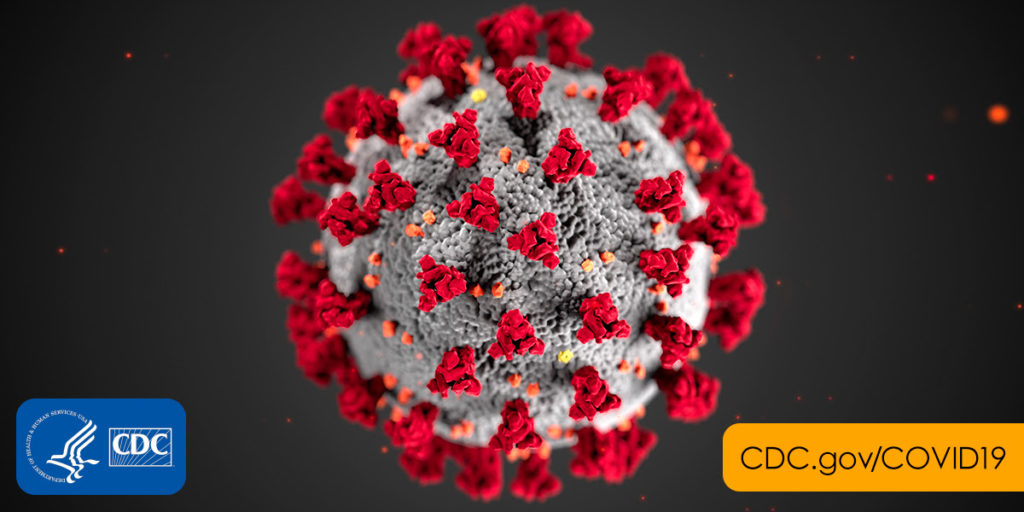Covid-19
Coronavirus (COVID-19)
What to expect
Please make sure of the following:
- In order to reduce the risk of infection we ask that you wear the provided mask properly at all times. Due to the limited quantity of supplies that are being distributed by manufacturers, some supplies such as masks, need to be reserved for patients and the treating staff.
- All seating are 6 feet apart, and we ask that all guest practice social distancing.
- We also ask that you practice proper universal precautions while in the clinics and around the staff.
- For efficiency purposes we ask that you clearly state your FULL NAME when asked by medical staff.
- Have your Photo ID cards and insurance card(s) available upon request.
- Please have your preferred payment method (card or cash) and your completed registration paperwork by the time you are called in.
NOTE: Only sample collections are performed on the premises. Testing of the samples is done by a offsite, third-party laboratory. Results are given as they are received from the testing laboratory.
Testing Locations
Main Testing – Bakersfield – 212 Coffee Road 8am-9pm
Bakersfield – 9917 Olive Drive 8am – 9pm
Bakersfield – 2400 K Street 8am – 12am
Bakersfield – 9710 Brimhall Road 8am – 9pm
Bakersfield – 4871 White Lane 8am – 12am
Bakersfield – 4040 California Avenue 8am – 9pm
Bakersfield – 2251 Mt Vernon Avenue 8am – 9pm
Fresno – 6789 North Blackstone Avenue 8am – 9pm
Clovis – 761 West Shaw Avenue 8am – 9pm
Temecula – 41540 Winchester Road 8am-9pm
Wildomar – 36290 Hidden Springs Suite D 8am – 9pm
Murrieta – 28110 Clinton Keith Road 8am – 9pm
Chino – 4108 Edison Avenue 8am – 9pm
symptoms
Reported illnesses have ranged from mild symptoms to severe illness and death for confirmed coronavirus disease 2019 (COVID-19) cases.
The following symptoms may appear 2-14 days after exposure*:
Fever
Cough
Shortness of breath
*This is based on what has been seen previously as the incubation period of MERS-CoV viruses.
What to do
If you develop emergency warning signs for COVID-19 get medical attention immediately. Emergency warning signs include*:
Difficulty breathing or shortness of breath
Persistent pain or pressure in the chest
New confusion or inability to arouse
Bluish lips or face
*This list is not all inclusive. Please consult your medical provider for any other symptoms that are severe or concerning.
More on COVID-19
For more information on coronavirus (COVID-19), including how to protect yourself, please visit the Center for Disease Control’s website at the link below.

COVID-19 FAQ
MONOCLONAL ANTIBODY TREATMENT
Antibodies are proteins that people’s bodies make to fight viruses, such as the virus that causes COVID-19. Antibodies made in a laboratory act a lot like natural antibodies to limit the amount of virus in your body. They are called monoclonal antibodies.
Monoclonal antibody treatment with bamlanivimab or with casirivimab and imdevimab are for people who have tested positive for COVID-19 and have mild to moderate symptoms. Casirivimab and imdevimab must be given together. Bamlanivimab is given alone. These treatments are allowed by the U.S. Food and Drug Administration (FDA) under an Emergency Use Authorization (EUA) while clinical studies continue to look at their usefulness and safety.
FDA emergency use authorization (EUA)
Learn more
To learn more about the FDA Emergency Use Authorization, click here.
PAtient eligibility
Who can get the antibody treatment?
Antibody treatment can be used by people with mild to moderate COVID-19 who:
• Test positive for SARS-CoV-2.
• Are within 10 days of the start of their symptoms.
• Are age 12 or older and weigh at least 88 pounds.
• Are at high risk of getting very sick from COVID-19 or of needing to be admitted to a hospital because of COVID-19.
Who is considered at high risk?
High risk for progressing to severe COVID-19 and/or hospitalization is defined as patients who meet at least one of the following criteria:
- Older age ( ≥65 years of age)
- Obesity or being overweight (for example, BMI >25 kg/m2 , or if age 12-17, have BMI ≥85th percentile for their age and gender based on CDC growth charts, https://www.cdc.gov/growthcharts/clinical_charts.htm)
- Pregnancy
- Chronic kidney disease
- Diabetes
- Immunosuppressive disease or immunosuppressive treatment
- Cardiovascular disease (including congenital heart disease) or hypertension
- Chronic lung diseases (for example, chronic obstructive pulmonary disease, asthma [moderate-to-severe], interstitial lung disease, cystic fibrosis and pulmonary hypertension)
- Sickle cell disease
- Neurodevelopmental disorders (for example, cerebral palsy) or other conditions that confer medical complexity (for example, genetic or metabolic syndromes and severe congenital anomalies)
- Having a medical-related technological dependence (for example, tracheostomy, gastrostomy, or positive pressure ventilation (not related to COVID-19)
Can I get antibody treatment while pregnant or breastfeeding?
We do not know yet if it is safe to use the antibody treatment while pregnant. Women who are pregnant or breastfeeding should talk with their doctor or other health care provider. There is no available data on the presence of lab-made antibodies in human or animal milk, the effects on breastfed infants, or the effects on milk production.
Who should not get antibody treatment?
The treatment should not be used for patients who:
• Are hospitalized due to COVID-19.
• Need oxygen therapy due to COVID-19.
• Those on chronic oxygen therapy due to underlying conditions not related to COVID-19 who need to increase in their baseline oxygen due to COVID-19.
The antibody treatment may make these conditions worse.
What if I cannot get antibody treatment?
This is not the only treatment for COVID-19. Other treatments include the antiviral drug remdesivir, plasma from people who have recovered from COVID-19, and steroids. Talk to your doctor or other health care provider about treatments that are right for you.
Benefits and side effects
Does antibody treatment work?
Antibodies must be given into a vein by intravenous (IV) infusion. Antibodies may be administered only in settings where health care providers have immediate access to medications to treat any reactions and where emergency medical systems are available, if needed, and where an emergency medical system is available, if needed.
What are the side effects of the antibody treatment?
Clinical studies are ongoing to evaluate the usefulness and safety of antibody treatment. It is possible that not all risks are known yet. Because bamlanivimab and casirivimab/imdevimab are antibody treatments, they could get in the way of your body’s own immune response to future infections with SARS-CoV-2, the virus that causes COVID-19, or they could affect your immune response to a vaccine for COVID-19.
The most common reported side effects with bamlanivimab are nausea, diarrhea, dizziness, headache, itchiness, and vomiting. The most common reported side effects with casirivimab/imdevimab are nausea and vomiting, hyperglycemia, and pneumonia. The side effects of getting any medicine by vein may include brief pain, bleeding, bruising of the skin, soreness, swelling, and possible infection at the infusion site.
In clinical trials of bamlanivimab and casirivimab/imdevimab involving nearly 3,000 people, two severe allergic reactions and five serious reactions related to the delivery of the treatment into the vein were reported. All reactions were treated and resolved.
How to get treatment
How do I take antibodies?
Antibodies must be given into a vein by intravenous (IV) infusion or subcutaneous administration which is an injection under the skin. Antibodies may be administered only in settings where health care providers have immediate access to medications to treat any reactions and where emergency medical systems are available, if needed, and where an emergency medical system is available, if needed.
Where can I get it?
Accelerated Urgent Care
Distribution and equity
How will limited supplies be divided and used fairly?
AUC is committed to ensuring health equity and to seeing that everyone has fair access.
Each of the state’s health regions get a share of the state’s antibody treatment supplies. Each health region in the state has several locations for antibody treatment, taking into account geographic and population needs. Within each region, supplies are divided based on the number of beds among participating facilities, and supply and demand.
How will supplies be divided among states?
The U.S. Department of Health and Human Services, Office of the Assistant Secretary for Preparedness and Response is overseeing distribution of national supplies. How much of the antibody supply states and territories get each week is based on their percentage of the country’s total number of confirmed COVID-19 patients and the total number of confirmed COVID-19 patients hospitalized during the previous seven days.
More information on the distribution of bamlanivimab, including the amounts allocated by jurisdiction, is available at HHS/ASPR: Bamlanivimab. More information on the distribution of casirvimab/imdevimab, including the amounts allocated by jurisdiction, is available at HHS/ASPR: Casirivimab/Imdevimab.
Can I get a COVID-19 vaccine if I have had antibody treatment?
We do not yet know how effective vaccines are in someone who has previously received an antibody treatment for a COVID-19 infection, or whether the antibody treatment could interfere with your body’s own immune response to a vaccine. Once you have had COVID-19, you are very unlikely to be reinfected for three months afterward. So, if you receive an antibody treatment, you should delay receiving a vaccine for three months as a precaution.
